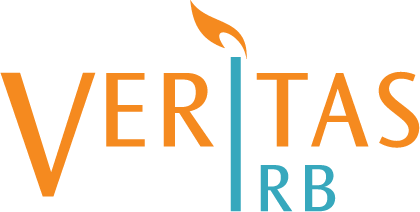Last month, Veritas IRB received a submission from a research sponsor (Canadian office of one of the top 20 pharmaceutical companies) for review of a Phase III, multicenter trial. Missing from the submission were the contracts (also referred to as clinical trial agreements) between the research sponsor and the Canadian investigators.
Instead of providing the missing contracts, the research sponsor decided to withdraw its submission and move to another forum for review – IRB Services. Why? According to the research sponsor it was because IRB Services does not require the contracts in its review process.
Why should an IRB review a contract between a research sponsor and an investigator? The answer can be found in the Tri-Council Policy Statement (TCPS) – Canada’s “Common Rule” governing research with humans. (The TCPS has been adopted by Innovative Medicines Canada – Canada’s PhRMA – in its Code of Ethical Practices.)
In the application of Article 11.12, the TCPS mandates that “[i]nstitutions and REBs should require the satisfactory amendment or removal of any confidentiality clauses or publication restrictions in research contracts that unduly limit either the content of the scientific information that may be disseminated or the timing of dissemination.”
In other words, it is incumbent upon IRBs to ensure that research sponsors do not stifle the academic freedom of their investigators through the imposition of “gag” clauses in its contracts. The only obvious way for an IRB to comply with this is to review the contract between the research sponsor and the investigator – the IRB’s legal representative would have the expertise in this regard.
People can get hurt when investigators are gagged. Research participants may suffer because they would be unaware of new information that may affect their willingness to participate in a study. Patients may suffer because doctors may be using incomplete data to make decisions about their care. Society as a whole may suffer because unsafe or ineffective therapeutic products may be put on the market
The contract review also allows the IRB to verify that the provisions in the contract are consistent with the compensation for injury language in the informed consent form. And finally, the contract provides the IRB with all the information required for it to ensure that the investigator’s potential conflicts of interest have been identified and minimized, or otherwise managed.
But why is Veritas IRB the only private IRB in Canada that reviews contracts? There are five accredited private IRBs operating in Canada – among them, only Veritas IRB is owned and operated by Canadians. Could this be why it is alone in its compliance with the TCPS? It is worth noting that an IRB operating in Canada must comply with the TCPS in order to maintain its accreditation!
This case highlights IRB Forum Shopping by the research sponsor – the research sponsor selected a forum based solely on its leniency or lack of rigour. This would not have been possible had standards been applied in a uniform manner by all private IRBs operating in Canada.
About the Authors

Martin Letendre
Martin Letendre is responsible for managing Veritas IRB's business operations and administering the activities of the Veritas IRB Boards. Martin is a member of the Quebec Bar and brings more than a decade of experience in health law and research ethics. His expert knowledge of, and ongoing activity and interest in research ethics have led to the publication of several reports and articles in peer-reviewed journals, and invitations as guest speaker at numerous conferences and scientific meetings. Martin was actively involved in the creation of an on-line tutorial for institutional research ethics boards in Quebec and was a member of Canada's three federal research agencies' Panel on Responsible Conduct of Research.


